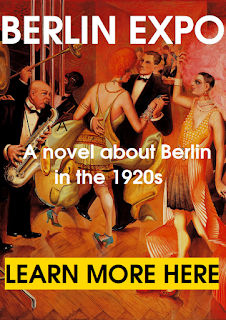Conrad Felixmüller
(1897-1977) was born in Dresden, where he also studied. In 1916 he
and Lyonel Feininger exhibited in Herwarth Walden’s famous gallery
Der Sturm.
Born as Conrad Felix Müller, he chose Felixmüller as his nom d'artiste.
He served as a
medical orderly in the First World War. He and his wife lived in
Dresden until 1931 when they moved to Berlin. During the Dresden
period, Felixmüller was a member and founder of several groups which
reflect and represent his artistic and political affiliation towards
the end and after the First World War. For example, in 1917 he
founded the “Expressionist Working Community” with Felix Stiemer
and Walter Rheiner; he was a member of the “propaganda committee of
the Socialist Group of Intellectual workers” in 1918 and the German
Communist Party (KPD). Moreover, Felixmüller became president of
the “Dresden New Secession Group” in 1919 which included members
such as Otto Dix and Gela Forster, and he was member of the 1919
“Novembergruppe” founded by Max Pechstein and Cesar Klein. His
membership of some of those groups later made him a target for the
National Socialists.
In 1933 and 1937
some of Felixmüller’s artworks were part of “Degenerate Art”
exhibitions in Dresden and Munich. Many of his works are lost today
due to the confiscation of his artworks from public collections by
the Nazis. An air raid destroyed his Berlin studio in 1944.
Felixmüller gained international ríecognition as an artist at exhibitions in Bologna and Rome in 1971, and the first prize at the IV International Graphics Biennale in Florence in 1974.
Felixmüller’s work includes paintings, graphic work and a few wood sculptures created around 1923. His early work is influenced by the Expressionist style but he created his last Expressionist painting, “the Death of the Poet Walter Rheiner”, in 1925. From then onwards, his subject matter, style and tone become increasingly realistic, and include working class depictions and private scenes.
 |
| Portrait of Mo von Haugk, 1932 |
 |





No comments:
Post a Comment